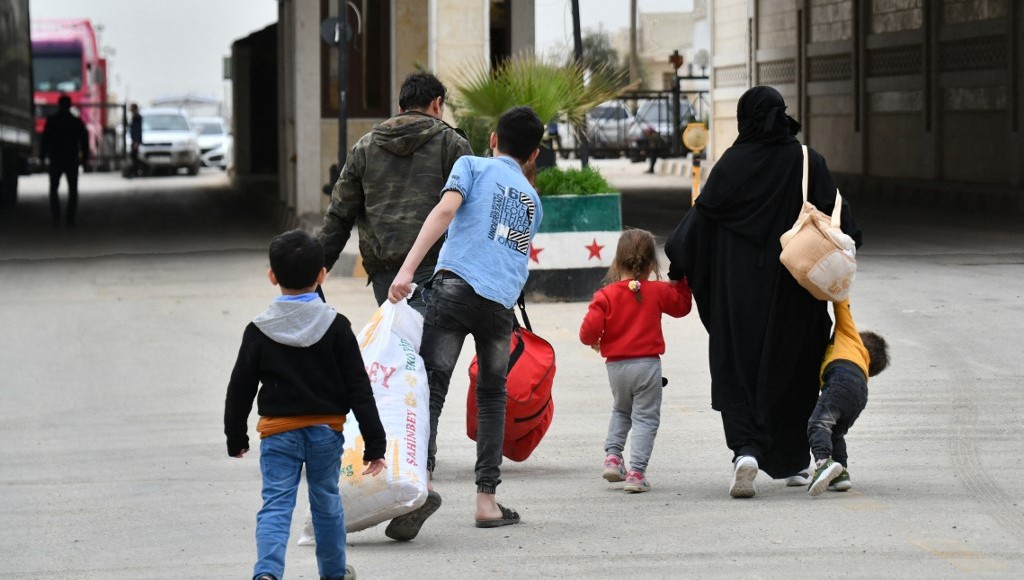Syrian refugees going home as part of Turkey’s “voluntary return program” said their return was far from voluntary and the result of increasing anti-migrant sentiment, the Stockholm Center for Freedom reported, citing the Duvar news website.
Many Syrian refugees currently waiting to home from the border cities of Gaziantep, Şanlıurfa and Hatay said their return was motivated by increasing hate crimes against migrants and anti-migrant sentiment fueled by politicians.
In early May Turkish President Recep Tayyip Erdoğan announced that his government was working on a new project to ensure the “voluntary” return home of 1 million Syrian refugees in Turkey.
According to Erdoğan, Turkey will work in coordination with local parliaments in Syria in 13 regions such as Azaz, Jarabulus and Tell Abyad and construction of infrastructure will be part of the project.
“We will be making efforts to lay the appropriate groundwork for the return [of the Syrians],” said Erdoğan.
Refugees who want to go home fill out a voluntary return form at the Directorate General of Migration Management in one of the border cities. They are then interviewed to determine if they are returning by force or of their own free will. The return process starts after this interview.
Refugees said it had become very difficult to survive financially in Turkey as there was much discrimination in the job market. Moreover, they no longer felt safe since political leaders, such as Ümit Özdağ from the far-right Zafer Party, targeted migrants on a near daily basis.
Journalist Enes El Ahmed said Syrians were not granted work permits in Turkey and had to work at irregular jobs. They were paid minimum wage, which was not enough for rent or basic necessities; therefore, they felt compelled to return to Syria.
Emir Leyli, a Syrian man waiting to return in Şanlıurfa, said he wanted to go home because of serious financial problems and because Turkish authorities would not renew his ID card or give him financial aid.
Mhmat Azem, another Syrian man, said most Syrians returned to a future of uncertainty. “People don’t know what will happen once they’re back in Syria. Will they be the victim of a bomb attack? Where will they work? Where will their children go to school?” he said.
He explained that many Syrians felt compelled to leave because they saw no future in Turkey or because they were arbitrarily deported by authorities.
Syrian journalist Halid El Homsi said many Syrians were detained for minor offenses and forced to sign voluntary return forms. They were consequently sent back to Syria against their will.
According to the Syrian Associations Platform (Suriyeli Dernekler Platformu) thousands of migrants from Syria, Afghanistan and Iraq have been illegally deported from Turkey. Despite many of them not being Syrian, they were all deported to Syria’s Idlib province.
Migrants were deported for minor offenses such as being involved in a traffic accident, failing to update their address and telephone information with the Directorate General of Migration and Management, forgetting their identity card at home or even for arguing with their neighbors.
Turkey hosts the world’s largest number of refugees, 3.7 million from Syria granted temporary protection status, and over 400,000 refugees and migrants from Afghanistan, Iraq and other countries.
However, according to MEP Tineke Strik, Turkey cannot be considered a safe country for migrants and asylum seekers because it is not bound by the refugee convention when it comes to non-European refugees.
Hate crimes against refugees and migrants, who are blamed for many of Turkey’s social and economic ills, have been escalating in the country in recent years.
Turkish media including pro-government and opposition outlets fuel and exploit the flames of hatred against people who fled their countries and sought refuge in Turkey.
Presidential Communications Director Fahrettin Altun earlier this year said the government’s refugee policy focused on the “voluntary and safe” return of refugees to their homelands. Altun informed that more than 500,000 Syrians had already returned home as a result of Turkey’s efforts to create secure and livable settlements in northern Syria.
However, critics say it is not certain that all refugees returned on a voluntary basis or if they were forcibly returned.
